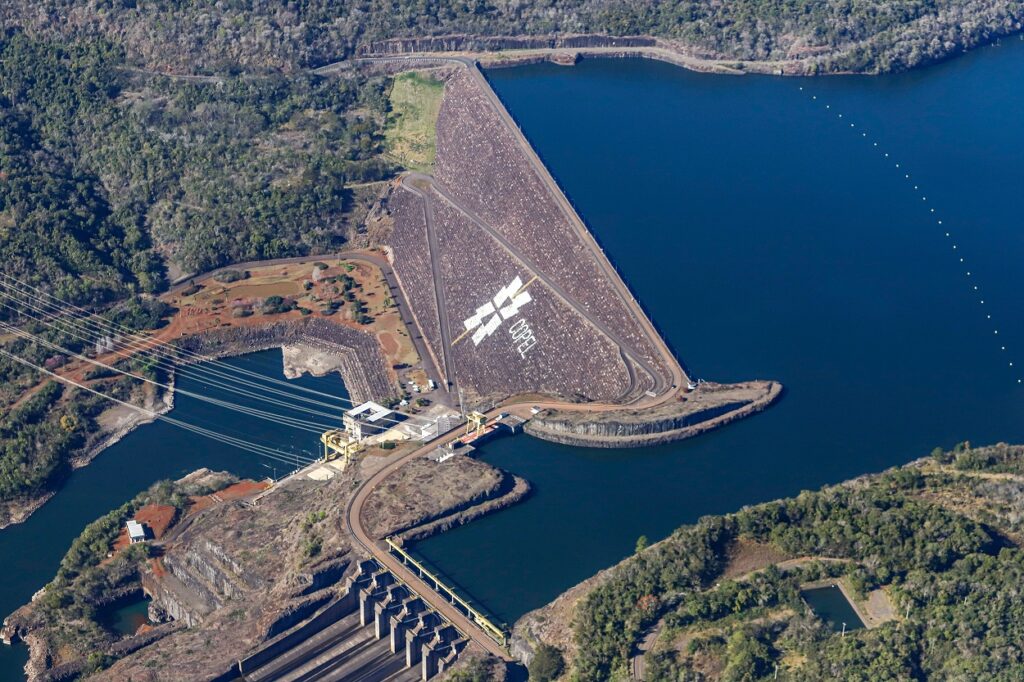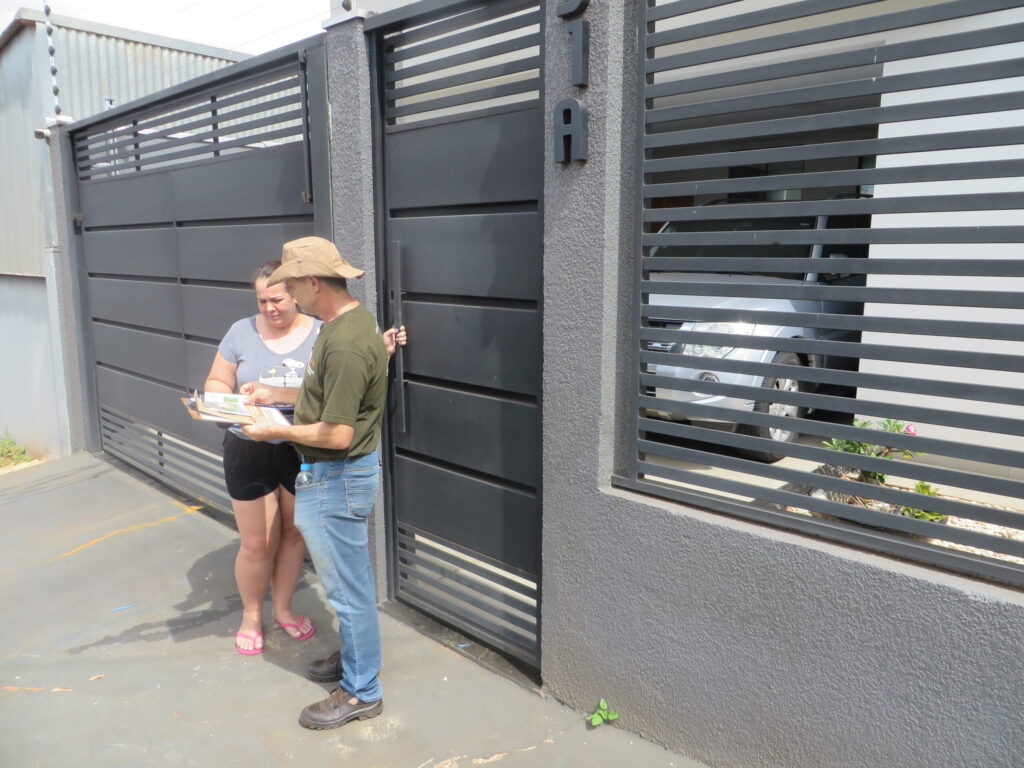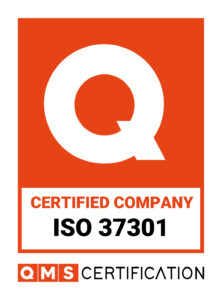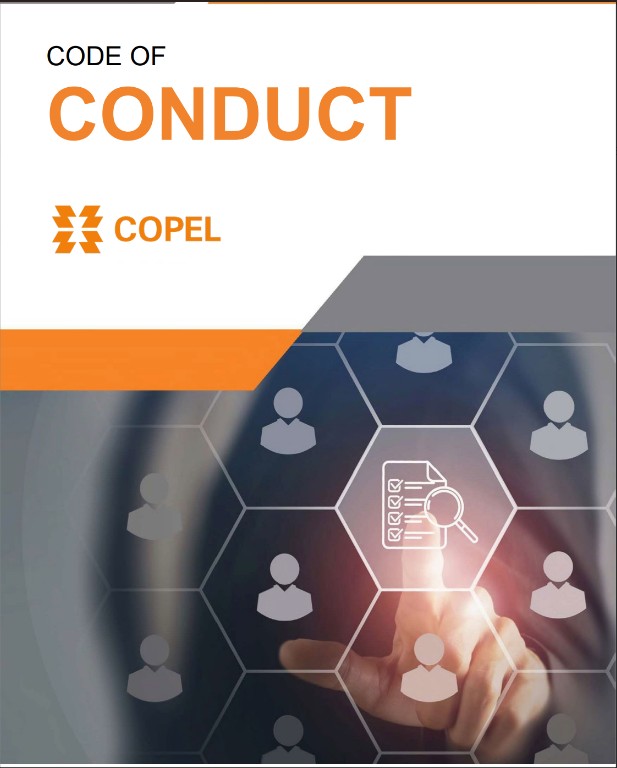ESG Compliance
Among the best governance practices of an organization are the transparency and publicity of information about the conformity of environmental, social, economic and governance aspects that allow the evaluation of the positive and eventual negative impacts of its activities and the generation of value for all stakeholders.
At Copel, the monitoring of these compliance indexes is performed by the contract managers, in the implementation and operation of the projects and by the management areas of the wholly-owned subsidiaries; monitored by the legal area and by the internal audit, as well as reported quarterly to the senior management.


The implementation of new ventures generates jobs and revenues for municipalities, contributing to local development. However, there are situations that require mitigation or compensation through social and environmental programs described in the basic environmental plans, in simplified environmental reports and in the detailed reports of the environmental programs of each venture.
The most sensitive impacts in the governance dimension are those related to top management decision making and strategic planning, which may result in substantial loss of economic value, as well as those arising from fraud and corruption, which may cause financial losses, fines, sanctions and penalties by inspection agencies, with consequent deterioration of the Company’s image.
Social responsibility and environmental management are material themes of the Company and Copel’s commitments to sustainable development, provided for in the Materiality Report. The environmental studies conducted aim to identify, avoid, reduce and mitigate the impacts caused by the implementation and operation of the undertakings.
The Company’s management of corporate risks is directly related to sustainable growth, Copel’s profitability and the creation of value for its shareholders. This process allows for the identification not only of threats but also of business opportunities, and to optimize decision making and the continuous improvement of results by connecting more closely the strategy and objectives of the business to the risk to which it is subject.
Copel is concerned about managing risks in the construction and operation of its undertakings in order to mitigate the negative socio-environmental impacts and potentiate the positive ones. Therefore, it performs a robust management of its licensing, relying on risk management methodology and monitoring of performance indicators.
The environmental licensing process aims at obtaining and maintaining all authorisations and licences that allow the implementation and operation of undertakings and facilities, ensuring compliance with the requirements of the legislation, commitments and socio-environmental responsibilities. The environmental, archaeological and socio-cultural licensing is executed by a multidisciplinary team formed by professionals from the environmental area, who work in cooperation with the professionals from the areas involved, from the conception and implementation of the project, and throughout the operation of the undertaking.
Upon receipt of a notice of violation or other document related to a potential violation of social and environmental regulations, the business area must forward the notification to the respective environmental area and to the legal area, which will jointly analyze the need to acknowledge the violation or contest its terms. When the need for contestation arises, the administrative or environmental process is registered in the environmental management system (SGA) and in the process management system operated by the legal department, with monitoring by the Company’s environmental and legal areas until its final conclusion and respective payment, if applicable.
Environmental Compliance
The environmental impacts are detailed in the studies carried out according to regulatory requirements and whose results are the basis for the development of actions not only for mitigation, but also for preservation or recovery, as conditions of the licensing process.
The main environmental impacts identified in projects for the implementation of ventures are related to soil use, changes in biodiversity, changes in water availability, among others.
To mitigate the impacts, Copel monitors and performs rescue of flora and fauna; acts in the preservation and recovery of Permanent Preservation Areas (APPs); forest replacement; archaeological monitoring and rescue, among other actions.

The total number and values of environmental violations that have occurred within the Company, over the last 5 years, are portrayed in the following table:
| 2020 | 2021 | 2022 | 2023 | 2024 | |
| Admin / Judicial | 0 | 0 | 0 | 0 | 0 |
| Value (BRL) | R$ 0.00 | R$ 0.00 | R$ 0.00 | R$ 0.00 | R$ 0.00 |
| TAC DIS | 0 | 1 | 1 | 0 | 1 |
| Value (BRL) | R$ 0.00 | R$ 540,790.00 | R$ 241,710.00 | R$ 0.00 | R$ 30,000.00 |
| TAC GET | 2 | 0 | 0 | 0 | 0 |
| Value (BRL) | R$ 676,569.57 | R$ 0.00 | R$ 0.00 | R$ 0.00 | R$ 0.00 |
| Total (Cases) | 3 | 1 | 1 | 0 | 1 |
| Total (BRL) | R$ 676,569.57 | R$ 540,790.00 | R$ 241,710.00 | R$ 0.00 | R$ 30,000.00 |
The figures presented refer to the number of notices of violations by environmental agencies that are being discussed at the administrative or judicial level (Adm / Judicial), or that were subject to voluntary agreements with the responsible entities in Terms of Adjustment of Conduct (TACs), divided by year that are recorded in the Company’s process management software, and the amounts paid in violations recorded or in voluntary agreements signed, involving the companies of the Company: Copel Distribuição S.A. (DIS) and Copel Geração e Transmissão S.A. (GET). In addition, the processes with significant amounts, above ten thousand US dollars, were considered.
The following table shows the amounts accounted for in the company as a result of the environmental violations reported in the administrative or judicial sphere (Projuris) and those recorded in the voluntary agreements celebrated with the responsible entities (DIS Violations and GET Violations).
| Liability | 2020 | 2021 | 2022 | 2023 | 2024 |
| Projuris | 1,411,729.77 | 814,003.49 | 887,117.65 | 179,720.98 | 58,296.77 |
| DIS Violations | 0.00 | 2,510,500.00 | 4,876,089.27 | 4,876,089.27 | 6,146,089.27 |
| GET Violations | 2,637,619.72 | 3,021,953.65 | 2,326,474.44 | 2,193,459.67 | 1,360,446.29 |
| Total (BRL) | 4,049,349.49 | 6,346,457.14 | 8,089,681.36 | 7,249,269.92 | 7,564,832.33 |
The recording of the amounts of the environmental violations that are being discussed at the administrative or judicial level follows the rules contained in Technical Pronouncement no. 25 of the Accounting Pronouncements Committee (CPC25), approved by CVM Resolution 72/2022, which provides for the recording in the Company’s balance sheet of the best estimate of the amounts to be set aside for the payment of sentences in judicial or administrative proceedings.
Social Compliance
Copel develops programs, projects and actions that benefit the community, the environment and the internal public, reflecting the socially responsible behavior it has assumed before society.
Internally, it grants benefits, additional to those provided by law, to its employees, stimulates the raising of educational levels, promotes professional advancement programs and cares for the health and safety of its workers.
Externally, it makes social investments, minimizes the negative impacts of its activities, enhances the positive impacts, and promotes programs aimed at improving the quality of life of the population.


Human Rights
Copel, committed to the respect for Human Rights and aligned with the UN Guiding Principles on Business and Human Rights, understands that it is its responsibility to prevent and mitigate related risks, as well as to provide for the remediation of violations that may occur within its sphere of influence, in addition to respecting the rights guaranteed by the Federal Constitution and the Universal Declaration of Human Rights.
In this sense, Copel has guidelines in its regulations, promotes actions with its interested parties, maintains a due diligence process and produces specific materials, according to the risks and opportunities it identifies. The Company is also represented in the Human Rights Work Group of the Global Compact Network Brazil, which allows the sharing of experiences with other companies and keeps it up to date regarding the best Sustainability practices.
Discrimination and harassment
Copel does not tolerate any form of discrimination and harassment. Therefore, it has a Permanent Commission for the Promotion of Diversity in order to foster equity and the fulfillment of human rights in the Company, paying attention to vulnerable groups and those subject to discrimination, especially those based on gender, race, colour, disability and sexual orientation. Identifying weaknesses and improving the way the Company deals with issues related to diversity is a fundamental part of its position as a company that follows the commitments assumed with the UN Global Compact and the Sustainable Development Goals, especially SDG 5 – Gender Equality, SDG 10 – Inequality Reduction and SDG 8 – Decent Work and Economic Growth.


Customer privacy data
Copel is committed to the accuracy, integrity, confidentiality and relevance of personal data based on the purpose of the treatment.
The retention periods and forms of disposal of personal data follow the procedures and guidelines established in the legislation and in Copel’s policies.
Upon expiration of the term and of the legal need for its storage, personal data will be eliminated and/or anonymized using safe disposal methods, according to internal guidelines of Copel.
| Reporting on Breaches | ||||
| Reporting areas | Breaches in FY 2021 | Breaches in FY 2022 | Breaches in FY 2023 | Breaches in FY 2024 |
| Human Rights | 1 | 0 | 0 | 0 |
| Discrimination or Harassement | 0 | 1 | 0 | 0 |
| Customer Pivacy Data | 0 | 0 | 0 | 0 |
Governance Compliance
Copel’s corporate governance comprises an efficient set of mechanisms, both of incentives and monitoring, in order to ensure that the performance of the administrators is always aligned with the best interest of the Company and its shareholders, with a view to equating issues for the benefit of the Company itself and of its stakeholders.
Copel’s corporate governance model is based on the principles of transparency, equity, accountability and corporate responsibility, seeking the best results for the stakeholders, following the best market practices and having as reference the Code of Best Governance Practices of the Brazilian Institute of Corporate Governance (IBGC).

Corruption or Bribery
In addition to the Integrity Program and the Code of Conduct, the most relevant guiding instruments to prevent and combat corruption within the Company, Copel has corporate policies, periodically revised and aligned with the U.S. Foreign Corrupt Practices Act (FCPA) of 1977 and the Sarbanes-Oxley Act of 2002, and with the Committee of Sponsoring Organizations of the Treadway Commission (COSO). Annually, Copel’s operational processes are submitted to risk evaluation related to errors or frauds and are tested by the Internal and External Audit.
Considering Copel (Holding) and its wholly-owned subsidiaries, 100% of Copel’s operations were submitted to corruption-related risk assessment in 2024 and no corruption-related lawsuits filed against the organization or its employees were identified.
In 2024, no cases of corruption or bribery involving the Company’s own employees were identified.
During this period, a complaint was received regarding corruption committed by outsourced employees. The case was considered valid, but of low impact and did not involve public officials. The contracted company conducted an investigation and promptly applied penalties to those involved. This case did not result in fines or convictions imposed by the competent authorities on the Company or the third-party company.
|
2024 |
|
|
Value of fines related to corruption and bribery cases |
R$ 0.00 |
|
Number of convictions related to corruption and bribery |
0 |
Conflicts of Interest
The guidelines for handling conflicts of interest are described in the by-laws and internal regulations of the statutory bodies of Copel and its wholly-owned subsidiaries, in compliance with the applicable legislation, specific policy and the best corporate governance practices of the Brazilian Institute of Corporate Governance (IBGC). The functions, roles and responsibilities of the governance agents are clearly described.
Furthermore, the Company has a structure of statutory bodies that operate with different levels of responsibility and attributions. The internal regulations of the Boards of Copel Holding and its Integral Subsidiaries detail the procedures for the resolution of potential conflicts of interest, especially in chapter IV, article 26. When a conflict or particular interest of one of the directors is identified in relation to a certain matter to be decided upon, it is the duty of the director to manifest himself/herself in a timely manner. Should he/she not manifest himself/herself, any of those present at the meeting who are aware of the fact shall do so.
Conflicts of interest are recorded in the minutes of the Board of Directors’ meetings made available on Copel’s website, and the director involved shall temporarily withdraw from the meeting. Additionally, the Board of Directors has approved and keeps updated the Related-Party Transaction and Conflict of Interest Policy, establishing guidelines to ensure the Company’s best interest and the principles of independence, competitiveness, conformity, transparency, equity and commutativity.
| Reporting on Breaches | |||
| Reporting areas | Numbers of breaches in FY 2022 | Numbers of breaches in FY 2023 | Numbers of breaches in FY 2024 |
| Corruption or Bribery | 0 | 0 | 0 |
| Conflicts of Interest | 1 | 0 | 0 |
| Money Laundering or Insider trading | 0 | 0 | 0 |




